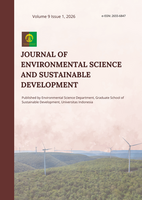Nurdiana Darus, Maya Tamimi, Silvi Tirawaty, Muchtazar Muchtazar, Dini Trisyanti, Rangga Akib, Dyota Condorini, Khair Ranggi
Plastic products have been an integral part of human lives. However, concerns
over plastic pollution have been growing. Thus, alternative practices that allow
more sustainable production and consumption pattern are urgently needed.
Improving plastic recycling management is one of the solutions to prevent an
increase in plastic pollution. This paper aims to uncover the potential of
plastic recycling, to define factors that can leverage the expansion of the
recycling process, and to evaluate possible measures that can realize such
expansion, especially given the limited literature on these topics. Therefore, a
four-month study, which involved two months of rigorous primary survey and
interview and secondary data collection process to obtain valuable and
accountable raw data, was conducted between October 2019–January 2020. The
conducted study showed that the urban population in Java Island generated around
189,349 t of plastic waste per month, but only 11.83% of it was collected. The
remaining 88.17% was either directly transported to landfills or littered in the
environment. Five major plastic types were collected in the recycling stream,
namely, rigid PP (25%), film HDPE (20%), rigid PET (20%), rigid HDPE (14%), and
film PP (9%) with more than 80% of collected plastic waste originating from
waste pickers. The paper highlights the major challenges in improving
post-consumer recycling: (i) failure of post-consumer plastic recyclable to meet
the quality industrial standard; (ii) limited recycling processes and
infrastructure; (iii) low market demand for recycled products.